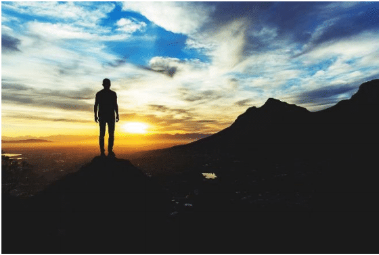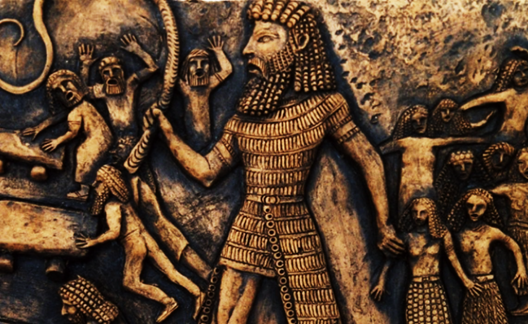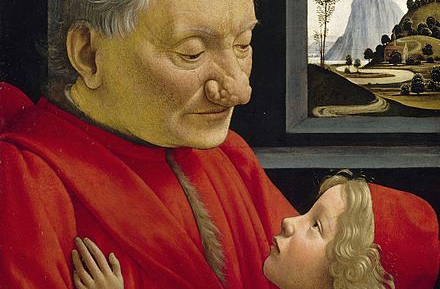Haunt and Inspire Me
My grandmother haunts me. My mother and I lived with her parents during WWII in Merchantville, NJ. Nearly eighty years ago, I have only a few faint memories. Some of those memories are probably mixed family members telling me stories.
After the war, my father returned to the States from the South Pacific, and we moved several blocks away from my grandparents. I was close enough to their home to walk over for unannounced visits. While growing up and attending elementary school, my grandmother would say things like, “I love me. I think I'm grand. When I go to heaven, I'll hold my hand.” It was her way of disciplining my brothers and me about fighting with each other, thinking we were better than each other.

I’ve written several articles about that pithy statement. Back then, I thought it was a famous saying by someone. I googled my grandmother’s comment to discover who said it. All that I found were citations to essays I had written. She was indeed wise.
I wish my grandmother were still around. I would also like to hear her response to Trump’s comment.
I guarantee she would utter, “I love me. I think I'm grand. When I go to heaven, I'll hold my hand.” After shaking her head in disbelief, she would add something like, “What’s the world come to?”
My grandmother wasn’t just against thinking about people being bigger than their britches. She would air her concerns about a litany of issues. Decades ago, we detonated atomic bombs into the atmosphere, on the ground, and deep below the ground, which bothered her immensely. She would use a common saying back then, “We will rue the day that we did that.” Ruing the day meant that we would regret all the atomic and nuclear bomb testing. Since Hiroshima and Nagasaki, eight countries have exploded over two thousand devices, even under the sea.
Global warming is a reality, even though Trump asserts, “The concept of global warming was created by and for the Chinese in order to make U.S. manufacturing non-competitive.” While I was growing up, global warming wasn’t a concept as it is today. Nonetheless, I learned not to waste things in my journey down the yellow brick road of life.
When my family would go to Oxford, PA, my grandmother would accompany us. My Quaker relatives had a dairy farm. I watched my grandmother and her cousins prepare meals. In hindsight, I noticed that they never wasted food, nor did they throw away cans, bottles, and boxes. Most of the food didn’t come in containers. As for the milk, I get up early and go to the barn to help the tenant farmers milk the cows. Then, I filled a small can of twice-filtered milk from the barn on the other side of the front yard of their home. I’d put it in their refrigerator.
Today, we use cardboard, glass, and plastic all the time. We dispose of tons of garbage, plastics, and carbon fuels, which pollute our air, land, and water. Times are changing, but we aren’t learning about changing our habits. This mistake of lack of knowledge and/or judgment is destroying our world.
Due to her religious background, my grandmother didn’t accept racism. She was born in the late 1800’s. Back then, racism was an issue between blacks and whites. Over her life, racism became a more diverse concern to include Hispanics, people from the Middle East, and Asia. Issues like white supremacy would have been beyond the pale for my grandmother.
My grandmother was ahead of her time and didn’t follow the wrong norms. She addressed them without feeling gloom and doom.
My grandmother died in her early 90s, a half-century before the Rolling Stones released Gloom and Doom. She would have endorsed that song, especially the following two stanzas.
There's no food for thought
Sitting on the side of the road
Like a round-about
Come on, sugar
All I hear is doom and gloom
When all is darkness in my room
Through the night, your face I see
Come on, sugar
Won't you dance with me?
Dance with me
We have a choice. We can learn from the mistakes of the past and survive. Or we can ruin this planet beyond repair, which will create fewer and fewer grandmothers. As Carl Sagan wrote:
Our posturings, our imagined self-importance, the delusion that we have some privileged position in the Universe, are challenged by this point of pale light. Our planet is a lonely speck in the great enveloping cosmic dark. In our obscurity, in all this vastness, there is no hint that help will come from elsewhere to save us from ourselves... There is perhaps no better demonstration of the folly of human conceits than this distant image of our tiny world. To me, it underscores our responsibility to deal more kindly with one another, and to preserve and cherish the pale blue dot, the only home we've ever known.
















